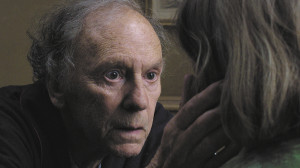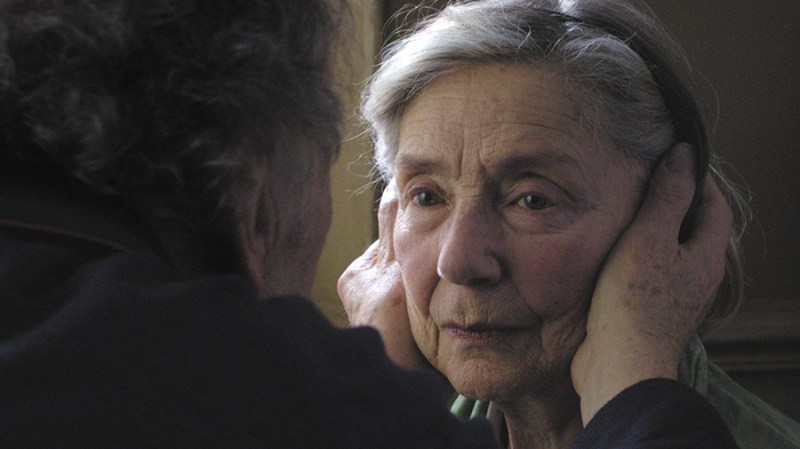
In refreshing contrast with some of the more ambitious, high concept or just plain abstract films playing in competition at Cannes, Michael Haneke proves that less is more with “Amour,” a simple yet emotionally rich story of how a sudden stroke affects an aging couple and their daughter.
Hooking the audience with an opening sequence that shows firefighters breaking into an upscale Parisian flat to find the deceased body of Anne (Emmanuelle Riva) lying in bed as though merely resting, the majority of “Amour” takes place in the recent past leading up to her death.
A first stroke leaves Anne partially paralyzed and confined to a wheelchair, leading her to feel increasingly guilty and depressed about both the sudden loss of autonomy and the sense that she has become a burden to her husband Georges (Jean-Louis Trinignant), despite his protests to the contrary. And no matter how optimistic the couple tries to be in adapting to this new lifestyle, Anne’s health stubbornly continues to decline. Visits from their grown daughter Eva (Isabelle Huppert) provide fleeting comfort and distraction, but even she is not oblivious to the ineffable decay in her parents’ once vibrant morale. As Anne loses control over her own body she expresses her desire for it to all be over, putting her family in the most difficult position of all.
Haneke makes no attempt to break with convention, as he does in some of his better-known works, but his execution of “Amour” is superbly elegant. Taking a slow, almost documentarian, approach, the film feels as though it unfolds in real time, relishing the precious few moments that Georges and Anne have left together and making each weighty decision and development that much more poignant.

What is simultaneously touching and terrifying about “Amour” is its unflinching realism, largely achieved by making the protagonists so nondescript. Georges and Anne could very well be anyone’s parents or grandparents, and the ordeal shared by the couple and their daughter is exactly what most of us have in store at some point in our lives. Growing old, losing the dignity in being able to care for oneself, watching the ones we love slowly fade away, making decisions for them when they are no longer capable of doing so themselves – these things are all a part of the modern human experience.
Through its portrayal of family relationships, “Amour” explores how the strength of these bonds and the depth of companionship allow people to carry on despite the unfortunate complications of aging. The end is bittersweet when it comes, but to be able to hold onto the good memories and not the tragedy of death, to feel utterly fulfilled by the time spent together – that is love.
This article is dedicated to my grandmother who, on May 23, 2012, passed away at the age of 97.
